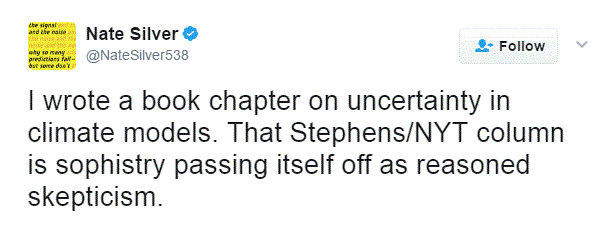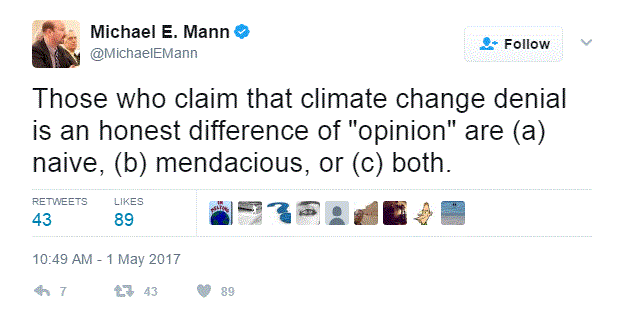By Kent R. Kroeger (Source: NuQum.com, May 1, 2017)
One of my favorite scenes from one of my favorite movies, Contact, has the U.S. government, led by James Woods’ character, head of the National Security Council, taking over a SETI project (led by Jodi Foster’s character) that presumably made contact with an alien intelligence.
You can view the classic scene here.
The scene, originally written by physicist Carl Sagan in his book that inspired the movie, was intended to give the audience the sense of a paranoid, security-obsessed federal government taking over what should have been left to the scientists.
At my first viewing of the movie, I shared that sense of the government’s over-bearing presence. Typical government overreach, I’m sure I thought. Just like what happened in E.T.
Twenty-years later, however, after spending ten of those years in our government’s national security bureaucracy, my take is quite different.
What would you want your government to do instead? Let the scientists control our society’s contact with this alien society? Yes? Really?
One reason we have a representative democracy is that we don’t want any segment of society to have monopoly control on the information that may be critical to our national security or general welfare. Even if, individually, we don’t have the clearances to see all of this information, we elect representatives with access and who, we presume, will use this information to the benefit of our collective interests.
Scientists may be good at their craft, but that doesn’t make them an elected representative of the people.
I was reminded of Contact while scanning Twitter on the controversy surrounding the New York Times’ new opinion columnist, Bret Stephens, who questioned the absolute certainty of the climate change community.
His article, Climate of Complete Certainty, won my admiration when it referenced the analytic arrogance of the Hillary Clinton presidential campaign. So certain of Clinton’s victory were the ‘big data’ mavens dominating the Clinton analytic team that the campaign all but ignored the ‘old guard’ polling analysts (that would be people like me) that said Clinton’s working-class support was eroding in the Rust Belt.
We know how that turned out.
Stephens’ apparent apostasy was relating the hubris of Clinton’s data scientists to the current state of climate change research. Regardless of whether that is a fair comparison, he does make two excellent observations in his op-ed piece.
First, two-thirds of the general public, according to the Pew Research Center, is not concerned about global warming – even though many accept that is happening and is caused by human activities.
The reason for the public’s skepticism is simple. The climate change lobby is incompetent. My evidence, you ask? I am my own evidence.
I believe the globe is warming because of human activities and this will cause many known and unknown tragedies if we don’t convert to clean energy as soon as possible. That said, I am skeptical of anyone that suggests they have the set of policies that will solve this problem and, most importantly, can get China, India and otherss to commit to these policies.
And for those that don’t include a robust nuclear energy component in their policy solution, I’m not just skeptical of their ideas, I think they are just full of sh*t.
As I said, I believe the earth is warming because of human activities. It is hard (though not impossible) for anyone that respects data not to conclude that the earth is significantly warmer than its was at the start of the industrial revolution. More importantly, the rate of this warming is faster than anytime in relatively recent earth history. This is the fact climatologists throw in your face when you begin the conversation about what public policies are appropriate to address global warming in a meaningful and cost-effective way.
Despite the protestations of the climate lobby, the costs associated with trying to reverse global warming is a legitimate issue. Maybe it would be more cost-effective and less growth-dampening if humans just adjusted to global warming instead of trying to engineer a return to our old climate? By the time China, India and most of the world’s other fast-developing countries burn all the remaining oil to fuel their economic growth, it is very possible any treaty signed in Paris or elsewhere to reverse global warming will become null-and-void.
But, at least we tried? Right?
No, not right. When some in the scientific community tells us we need to spend $44 trillion to convert the world to 100 percent renewable energy by 2050 , they are now dabbling in economics. And even if climatologists are good at predicting the economic costs associated with global warming (they aren’t), the issue enters the political domain. And rightfully so.
The tragedy is that the environmental movement has from that start chosen to turn its core issue into a partisan battle. When they did that, they did more harm to their cause than a congressional hearing full of climate change ‘deniers’ could ever accomplish.
Stephens’ second point is the one that really rankled the self-appointed thought police that (formerly) subscribed to the New York Times. He writes that anytime science claims total certainty it “traduces the spirit of science and creates openings for doubt whenever a climate claim proves wrong.”
I would have re-worded his sentence to say instead, “…whenever new evidence fails to support a climate claim.” It is a subtle difference but an important one. Gains in scientific knowledge are iterative and often non-linear. Sometimes sample sizes are too small. Sometimes selection bias works against the research aim. Sometimes new evidence, for a multitude of reasons, clouds the situation instead of giving clarity. The practical reality in science is this: not every data point supports your hypotheses or their theoretical construct. Scientists understand that problem.
But this is what met Mr. Stephens on Twitter after his column was published. And lets start with our nation’s future ‘Chief of Sanctioned Thoughts,’ Nate Silver:
The Daily Wire’s, Ben Shapiro, knocks Mr. Silver down a notch with this excellent critique of Silver’s criticism of Stephens (here). Suffice it to say, talented data analysts (like Mr. Silver) can have ideological blind spots too — making even more ominous Mr. Silver’s soul-chilling support for a data analytic Star Chamber to review and approve all op-ed data references before the opinion pieces can be published. If that isn’t a dog whistle that will send most Republicans into a rage about leftist fascism, nothing will.
However, it is with the scientific community that I find the reaction to Mr. Stephens most disturbing. Climatologist Michael Mann’s tweet pretty much represents the bulk opinion in that community:
While in another tweet accusing Mr. Stephens of setting up a ‘straw man’ argument to challenge climate change orthodoxy, Dr. Mann returns the favor with his own ‘straw man’ argument suggesting Stephens is a ‘denier” (the new scarlet letter). He must not have read Stephens’ piece which emphatically says about his article, “None of this is to deny climate change or the possible severity of its consequences.”
What does the man have to say to convince you he believes in global warming?
If the climate change ideologues wanted to prove Mr. Stephens correct, they couldn’t have done a better job.
I invite everyone to read Mr. Stephens’ piece on climate change. He is asking what every politician and citizen should ask before they commit trillions of dollars to an effort that may ultimately fail to reverse global warming.
Dr. Mann, as a scientist, tell us the probability that the planet, if we commit to all of your policy prescriptions, will be successful in reversing, or at least stopping, global warming? If you respond with anything over 50 percent, to quote someone you know, you are either (a) naive, (b) mendacious, or (c) both.
“But at least we tried,” won’t be a sufficient response to compensate the hundreds of millions of people kept or sent into poverty because the world failed in its costly experiment to proactively engineer the earth’s climate.
I haven’t cleared that last sentence with Nate Silver, yet.
The author can be reached at: kentkroeger3@gmail.com
About the author: Kent Kroeger is a writer and statistical consultant with over 30 -years experience measuring and analyzing public opinion for public and private sector clients. He holds a B.S. degree in Journalism/Political Science from The University of Iowa, and an M.A. in Quantitative Methods from Columbia University (New York, NY). He lives in Ewing, New Jersey with his wife and son.

